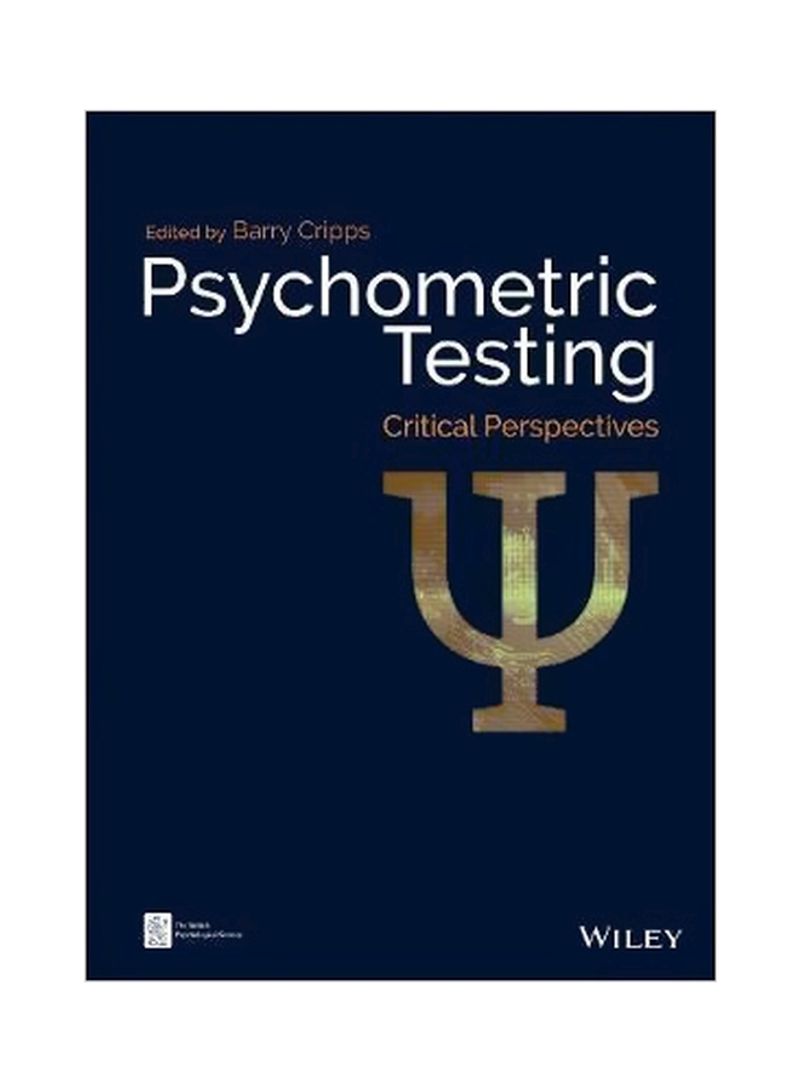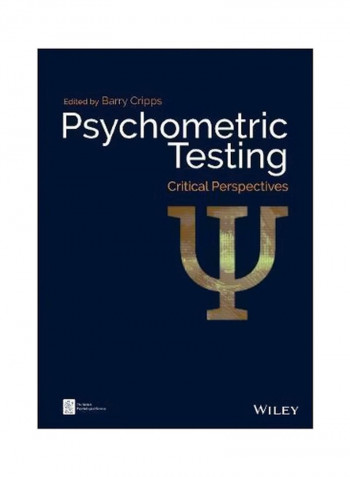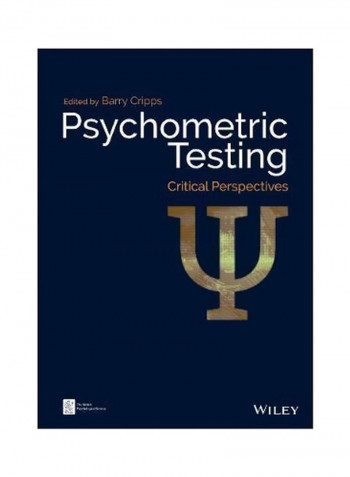Psychometric Testing : Critical Perspectives Hardcover
Recommend
Sort by
Rating
Date
Specifications
Author 1
Barry Cripps
Book Description
Psychometric Testing offers an in-depth examination of the strengths and limitations psychometric testing, with coverage of diverse methods of test development and application. * A state-of-the-art exploration of the contemporary field of psychometric testing, bringing together the latest theory and evidence-based practice from 21 global experts * Explores a variety of topics related to the field, including test construction, use and applications in human resources and training, assessment and verification of training courses, and consulting * Includes applications for clinical psychology, performance psychology, and sport and exercise psychology across a range of professions (research, teaching, coaching, consulting, and advising) * Acknowledges the dynamic nature of the field and identifies future directions in need of more research, including Internet and smart phone testing
ISBN-10
1119182980
Language
English
Publisher
John Wiley & Sons Inc
Publication Date
8 May 2017
Number of Pages
326
About the Author
Barry Cripps is a Chartered Psychologist, a Registered Psychologist and a Fellow of the British Psychological Society (BPS). With his consultancy, Cripps Performance Psychology, he specializes in supporting people and teams to enhance their performance in a variety of sectors including the performing arts, industry, the public sector, education, and sport. He received the 2008 Distinguished Contribution to the Field Award from the BPS Division of Sport and Exercise Psychology. He is co-author of Psychological Assessment in the Workplace: A Managers Guide (Wiley, 2005) and the Psychometric Testing Pocketbook (2008). He has lectured at the Open University, the University of Plymouth, Exeter University, and the University of Commerce, China.
Editorial Review
Can Psychometrics Be Exciting? Oh yes! Psychometric Testing - Critical Perspectives Dr Barry Cripps (Ed), Wiley-Blackwell 2017 Reviewed by Dr George Sik I know you'll find this hard to believe but some people actually find psychometrics a little dull. I expect it's all the numbers. To them - and to those who love psychometrics too - I would have no hesitation in recommending this thought-provoking book. Editor Barry Cripps has pulled out all the stops and assembled a dazzling variety of chapter authors, many very well-known in the field, covering everything from inkblots to team building and from best practice to leadership selection. There are actually very few numbers on parade here - as in Levitt and Dubner's Freakonomics, I think the decision to leave them out (ok: there are one or two still present!) was, for the sake of a wider potential readership, a wise one. I also like Barry's advice to 'dip in and out as you please'. Current issues and arguments in the field are given ample airing, with insights from the worlds of educational, clinical, forensic, sport & exercise but mainly occupational psychology. A short but illuminating foreword by John Rust reminds that the history of psychometrics in the UK thus far has actually been full of controversy (eugenics, the Burt scandal, the Eleven Plus - topical again with the Prime Minister's fanatical zeal to reintroduce grammar schools as soon as she can). Adrian Furnham's piece on The Dark Side is less about Star Wars and more about Marie Lloyd's sage advice that a little of what you fancy does you good (but overdo it and you might derail). Peter Saville pitches in with some tips on item construction ('Keep It Simple, Stupid' is a mantra that definitely applies here). I had wondered whether this book would cover similar ground to his From Obscurity to Clarity in Psychometric Testing, co-written with Tom Hopton last year, and, while there is inevitably a little overlap, there is plenty here that is new and fresh. I was intrigued by Dave Collins and Andrew Cruickshank's piece about psychometrics in sport, where questionnaires are often imported with very little consideration from the world of occupational psychology just as many of these in turn were once adopted uncritically from clinical psychology. Controversial footballer Joey Barton revealed in his autobiography that, upon being profiled by Burnley, he stuck his report on his locker for all to see. I can think of no greater endorsement. Rob Bailey provides a straightforward guide to psychometrics for the HR practitioner - watch it Rob, you'll have me out of a job! One of my favourite pieces is 'When Profit Comes In the Door, Does Science Go Out the Window?' by Robert Forde. His forensic background gives a different perspective to that of several of the other authors here and one of which we should all take heed. It is ironic that the Myers-Briggs Type Indicator, whose limited validity receives considerable criticism, is mentioned warmly by several of the other authors - in fact, the very next chapter is by Robert McHenry whose company distributed it in the UK. But that's the thing about the psychometrics game: despite the numbers, the scientific rigour and the emphasis on validation, it's still full of intrigue and debate and that's surely why it provides such fascination and - dare I say it? - fun. This book really brings the subject to life and will reward its reader with many hours of enjoyment. Dull it most certainly isn't. Dr George Sik is a Consultant Psychologist at eras ltd and co-author of The Quest Profiler.



